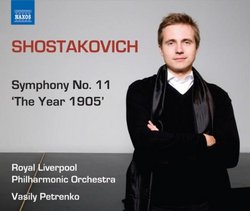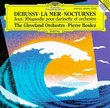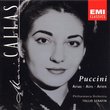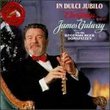| All Artists: Shostakovich, Royal Liverpool Philharmonic Orchestra, Petrenko Title: Shostakovich: Symphony No. 11 'The Year 1905' Members Wishing: 1 Total Copies: 0 Label: Naxos Original Release Date: 1/1/2009 Re-Release Date: 3/31/2009 Genre: Classical Styles: Historical Periods, Modern, 20th, & 21st Century, Symphonies Number of Discs: 1 SwapaCD Credits: 1 UPC: 747313208272 |
Search - Shostakovich, Royal Liverpool Philharmonic Orchestra, Petrenko :: Shostakovich: Symphony No. 11 'The Year 1905'
 | Shostakovich, Royal Liverpool Philharmonic Orchestra, Petrenko Shostakovich: Symphony No. 11 'The Year 1905' Genre: Classical Charismatic young conductor — Vasily Petrenko launches his — Shostakovich Symphonies series — with the Eleventh , a highly — charged depiction of the 'Bloody — Sunday' massacre of over two — hundred peaceful demonstrators — by Cz... more » |
Larger Image |
CD DetailsSynopsis
Product Description Charismatic young conductor Vasily Petrenko launches his Shostakovich Symphonies series with the Eleventh , a highly charged depiction of the 'Bloody Sunday' massacre of over two hundred peaceful demonstrators by Czarist soldiers outside the Winter Palace in St Petersburg in 1905. Scored for a sizeable orchestra of triple woodwind, four horns, three each of trumpets and trombones, tuba, timpani, percussion, celesta, harps and strings, the Symphony makes extensive use of revolutionary songs as thematic elements, as it progresses, without pause, from the glacial opening movement, Palace Square, to the terrifying massacre and its aftermath, The Ninth of January, the funereal third movement, Eternal Memory, and the final movement, The Tocsin, which culminates with cataclysmic bell strokes. Similar CDs
Similarly Requested CDs
|
CD ReviewsVasily Petrenko, RLPO, Shostakovich Sym 11: Year of 1905: In Dan Fee | Berkeley, CA USA | 04/02/2009 (5 out of 5 stars) "I've already enjoyed Petrenko leading the RLPO (Royal Liverpool Philharmonic Orchestra) in Tchaikovsky's huge symphony-tone poem, Manfred. I also noted that not everybody got as much out of hearing that disc as I did, with some distinctively negative review notes sounded in passing. I also enjoyed the way that Petrenko worked with pianist Eldar Nebolsin on their Liszt concertos disc, though yet again some reviewers found either the players (or Liszt's music) wanting. So here we go again. Bottom line is, I think this disc is possibly the very best of the three discs from Naxos. I like the other two just fine, for slightly different reasons; but this Shostakovich Eleventh Symphony brings it all together, reaching new sonic and musical heights. I also think this particular reading can stand comparison with the best of the available catalog and come off very high, if not in some minds and hearts and ears, the highest so far. I cannot quite recall a similarly auspicious young conductor debut in Shostakovich, since the unhappily aborted Phllips Universal label debut of the young Semyon Bychkov. Maybe we can attribute some of this success to the conductor settling in, quite nicely as a significant musical team, with the band? Petrenko has been working with RLPO, since at least 2006. From all indications on this new disc, the conductor and the band are hand in glove, at least from the sound of it. Add in the composer's high stakes in this musical proceeding; and we get one of those Russian Troika configurations, wild, powerful, pulling us fiercely across the shining snow and ice of hard winter. In Shostakovich' opus, this symphony is all about hard Russian winter. Or, to be more historically accurate, a famous massacre of the protesting low income and starving citizenry that took place outside the Czar's winter palace, in hard winter. (Nicholas II) The palace guards fired into a crowd who were gathered peacefully; killing in all somewhere over two hundred people. Thus, the composer's fiftieth birthday roughly coincided with national commemorations of the Julian calendar's January 9th, 1905. The existing Soviet state apparatus was also partly rehabilitating the composer politically - yet again - as a duly noted Russian Revolution Artist. So, for various contemporary reasons everybody yet again had a lot riding on what Shostakovich might or might not manage in his newest symphony. Happily, to my ears, Petrenko and the RLPO get it all pretty much right in this reading. The opening is a remarkable success. Petrenko and the RLPO Players combine an introductory, scene-setting cinematic narrative flow with a musically canny and flexible unfolding of the harmonic tensions implicit, predictive in those long opening melodies. Such an opening is as much as many good readings of this symphony can manage to offer us. Petrenko and the RLPO players, however, go even further. The grim, relentless tread of the rhythmic motive underpins and portends the gathering sounds of an impending tragedy without falling apart, too much or too little. Given what the composer does in the low end of the orchestra, the challenges of pacing, integrating, combining all the right touches with an unimpeded narrative or musical flow is at least as difficult as Sibelius' later symphonies from the fourth onwards. A very good performance can get away with managing one or two of these musical dimensions, enough to make considerable musical points, leaving us fairly happy we listened. A great reading brings it all together, and the whole music just snaps vividly, fiercely into sharp focus. Folk songs, cinema, history, music - bringing us powerfully back to ourselves as humanity. The second movement which spells out the deadly events, is also effectively paced and shaped. Here the difficult balance to be struck among the rhythmic motif, the cinematic narratives, and the ambivalently coded pure music of western symphonic music in the twentieth century is ringing, clear as a bell. The Allegro assault gathers in a dramatic or brilliant repeat of Prokofiev's Alexander Nevsky Battle On The Ice; then sounds touches of lament as all fades into the melancholy yet knowing evocations of the third movement. In that third movement, Shostakovich apparently wanted to connote not just memory, but eternal memory. One may either read that eternity bit as a piece of required Soviet revolutionary hype; the progress of the revolution was after all State Hyperbole - supposed to be the raising of all humanity - from domination to freedom, to progress, and to well-met feeling among all global brothers and sisters. Or, one may recall the many-sided codes and contexts which make Shostakovich a sort of uniquely modern master, as if his pure music were more indebted to Artificial Musical Intelligence (better than our worst political selves?) than we ordinarily comprehend. Again, the problems of pacing this movement's music are akin to dilemmas about how to do Sibelius' fourth or later symphonies. Again, I hear Petrenko and RLPO getting it just about as right as anybody else on disc so far. Certainly, surpassing other big name conductors whose eleventh symphonies have left me partly impressed, partly disappointed. (Rostropovich, Pletnev, Haitink, Jansons, Ashkenazy, even the marvelous Oleg Caetani). Certainly, right up there with my personal fav shelf bench marks (Mravinsky, Ormandy, Cluytens, Stokowski, Barshai, Bychkov with Berlin). The concluding fourth movement is all motion, vigor, and circular music on point cycling and re-cycling. Who is chasing whom? Who is mindlessly repeating what tragedy, what injustice? To my hearing, Petrenko manages to deepen the required surface gloss of Soviet revolutionary martial triumph with that coded emptiness of gesture and purposeless that tells us the revolution was not a rise, not the Great Leap forward it proclaimed itself so loudly to be. I also think I hear very nice passing touches of the great mass of ordinary citizens, just going about their daily business, anyway. Allusions to western polyphony, canon, waltz - a bigger and deeper human heritage that even the iron fists of dictatorship or global business cannot quite take away from us. I also hear touches of constantly passing risk and danger; as if Eisenhower were still with us, say, warning about the dangers of the military-industrial complex in western democracies. Are those final massed alarms, a warning from the state and the secret service police to the cowering populace? Or, a coded warning to all the big bosses, from all those so long abused, murdered, and repressed, living or dead? The last slow coda returns us to the Eternal Memory movement. Tender is the Great Vision of Peace, Equality. Unfinished, unrealized is the Wondrous Vision of a generous and capable humanity, all engaged productively, all living fulfilled in some real peace. Is this last business of the music, the sawmill buzz of bottomless greed? Bottomless domination? Or, the near-mystical Last Apocalypse of some impossible yet Just, irrevocable consequence finally crashing in? No doubt the party bosses at the world premiere heard it one way. How will we hear it? A listener is left thinking - as in the best of the Yevgeny Mravinsky readings with Leningrad - just how marvelous, intelligent, and deeply human Shostakovich was as a world artist, not just as a famous Russian artist. This is the difference, say, between a reading of Tchaikovsky's sixth symphony that is replete with sad, compelling personal anguish or secret sexual-romantic tragedy; and a musical reading that reaches even deeper, into what Germans might call, Zeitgeist, Weltschmerz. Very highly recommended. If the remainder of this proposed complete symphony cycle can keep up the commitment and the musical quality of this disc; we are in for one of the really great Shostakovich symphony sets so far captured in the catalog. Unfairly, this start raises the stakes very high, indeed. Yes, in some idealized vision I still wish we could have had a complete set from Mravinsky and Leningrad in very good stereo PCM sound, if not in super audio surround sound. But, lacking that wish, this is a serious start on reaching high in the complete symphonies. (Ah, Naxos: Super audio? Sometime?)" Remove the score, please! Damir Janigro | Cleveland Hts., OH USA | 01/23/2010 (5 out of 5 stars) "This is an excellent, fairly priced, interesting rendering of D's work. The negative review (a 1 star) by a downloader does not give justice to the CDs. He/she got ripped off when a download of DHS resulted to be else, and thus gave a negative review score. How does this glitch relate to the CD and the artists involved remains a mystery, and since nobody has time to worry about this, I propose, as others have, to REMOVE THE SCORE! Thanks."
|











